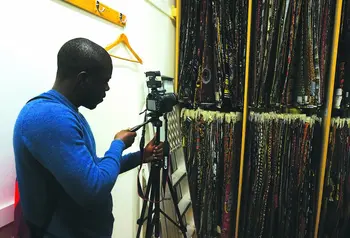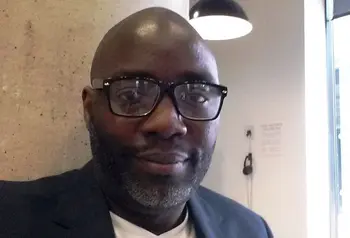Remembering the stories of the Windrush generation

In 2013, while I was working on an HLF project called Rasta Roots, I filmed some footage of my father who was visiting from Ethiopia. He shared stories about his life in Manchester, some of which I’d never heard before.
Sadly my father passed away as the project was running. Had I not captured those stories, I would never have heard them.
It occurred to me that, with each passing year, the stories of how elders in my community settled in Manchester were being lost, slowly seeping into folk law with very little known about who, what, when and why.
Who were the people that travelled far from home? What did they do when they reached the UK? Why had they decided to take such seemingly drastic action?
All of a sudden it felt really important to share the heritage of the community far and wide. The arrival of the Empire Windrush from the Caribbean in 1948 marked the beginning of mass migration after the war, and it was a key point in the rich history of Manchester.
I saw it as a unique snapshot of time past, one that had not been explored and documented anywhere.
Applying for funding
So we applied for a Heritage Lottery Fund grant for a project called Each One, Teach One. This aimed to preserve and share the oral history of the Windrush generation from Moss Side and Hulme in Greater Manchester.
“It occurred to me that, with each passing year, the stories of how elders in my community settled in Manchester were being lost."
- Marcus Hercules
Using five important sites in the Moss Side area: Reno Nightclub, Moss Side Precinct, the Bull Ring, Moss Side Fire Station and Medlock Court Flats, we brought elders and younger members of the community together to share stories and create performances based on their experiences.
We produced two exhibitions, a full-scale theatrical sharing performance, paintings and portraits, all based on the oral history of elder participants.
Getting people involved
At times the elders were guarded about their experiences, perhaps from habit. There was a feeling that they were keeping stories enclosed within their walls; once we managed to scale those walls, most elder participants were happy to open up.
The use of drama was a really effective tool. We were really surprised at how well the fusion of professional performers and the elder and youth participants went.
Drama-based games and activities not only led to some enthusiastic and surprising work coming from these sessions but also provided some physical activity for participants, which overall improved general wellbeing.
Creating a ‘safe’ space to share experiences
We never expected to hear so much or uncover so many fascinating facts about the community; we knew there were stories to tell but some were unexpected.
I think this was because we provided a knowledgeable team and created a safe space for sharing. The fact that the project went as smoothly as it did is a testament to a strong project plan and the great practitioners we worked with.
Our HLF grant gave us the freedom to explore the history and heritage that was important to our community. Knowing that we had the expertise and support of HLF gave us more confidence in the running of the project and the North West team were always on hand to provide advice on the best ways to collect and archive oral history.
Capturing memories
We captured oral histories that would never been shared otherwise; for example a woman called Henrietta Shaw gave us an account of leaving her father. She used the phrase ‘a teefin picknie’ (a Jamaican colloquialism meaning a child who has been stolen from one of their parents).
We were able to share, define and remember this phrase; the impact of that sharing means that that forgotten term lives, as does her story. To me, that is powerful.
"Our HLF grant gave us the freedom to explore the history and heritage that was important to our community."
- Marcus Hercules
The project enabled the company to expand our reach into the communities we engage with - we met elder and young participants that are still part of our company story. As we are able to bring in local experts and a strong wider creative team the company was able to reach a larger audience.
Being able to use a professional set designer helped to add cohesion to the different outputs as everything from the set lighting to the flyers followed a uniform scheme.
The project as a whole impacted on elder and youth alike bringing the community closer together, and all parties felt valued and respected.
Top three tips for applicants
- Keep applying - don't give up!
- Access and ask for support - it took us a few goes to get funding for this project; however at every turn we acted upon feedback and ideas from the team
- Keep heritage at the heart of your project - it's the main objective of the Fund!
Read more about how The Heritage Lottery Fund can support cultures and memories projects.


